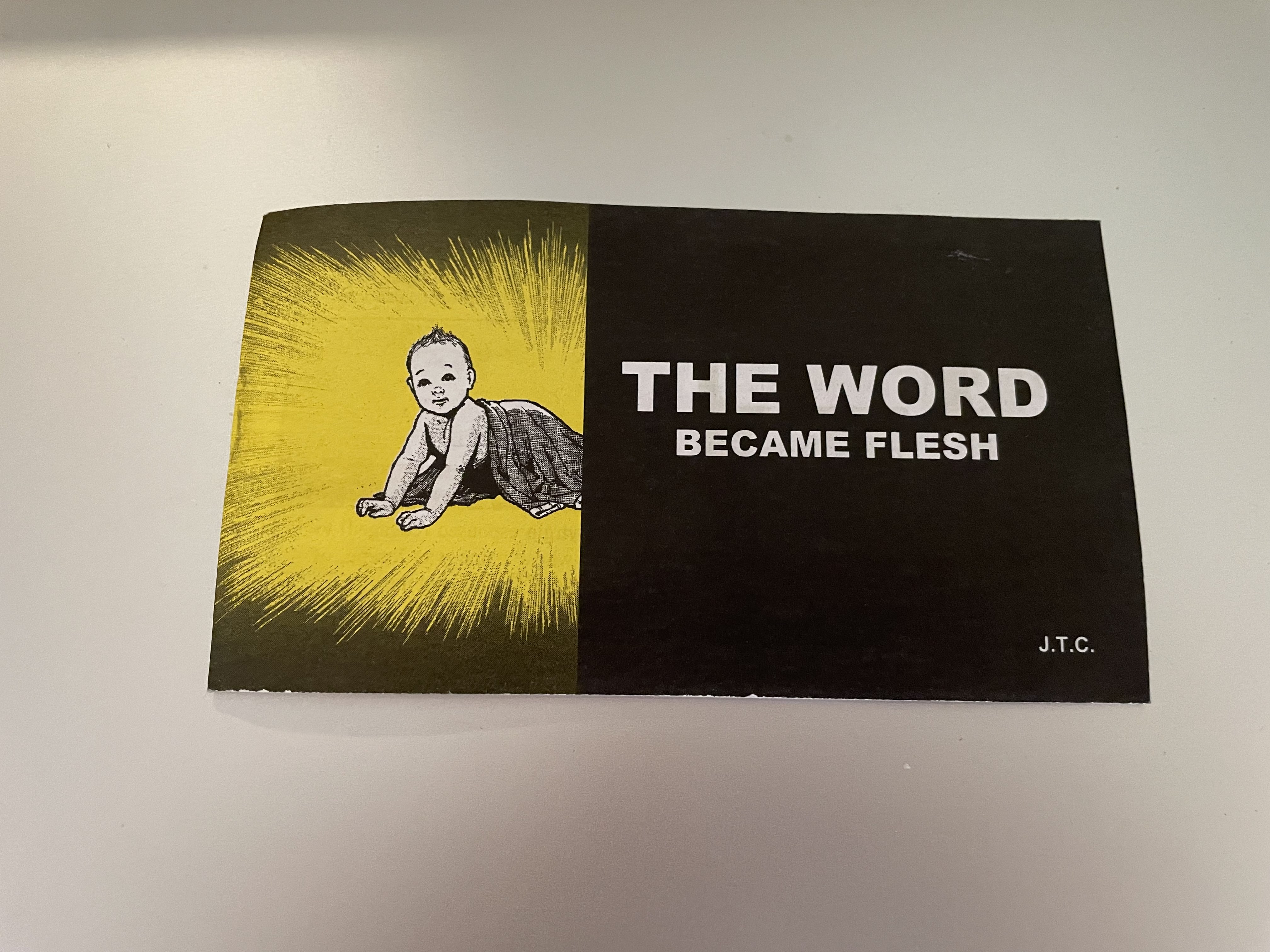Somehow, in this media hypersaturated world, I’ve been feeling like I should watch more television. It’s the end of the academic year, and I constantly find myself in a weird limbo between feeling overloaded with home stretch work and having absolutely nothing to do. This limbo usually fluctuates within hours multiple times every day. And when my schedule creates a void, I need something to fill it. (I guess my time management skills are too good.) My teenage years made me into a movie watcher as I subconsciously rejected the cartoons of my childhood. But as someone who loathes dismembering a movie that was intended to be watched in one sitting, finding the time to fully digest one is sometimes tricky. TV can provide a similar experience in a (usually) shorter time frame, making it easier to work into a night. And, when done right, it can be the medium for incredible and moving works.
Not that everyone is “doing it right.”
The internet alerted me yesterday to the fact that horribly corrupt anti-democracy politician Rudy Giuliani made an appearance on a show called The Masked Singer. (It had apparently first leaked a while ago, but it somehow it didn’t appear on my radar back then, or maybe the news cycle moves way too fast for anyone to keep up in today’s world.) The first thing that popped into my mind upon learning this oh so crucial piece of information was this: Again? It was only a few months ago that that show, which I have never watched, made similar headlines for having Sarah Palin on as a fluffy singing bear or something, which had made me want to slam my head into a wall. Why?
Well, I think I’ve figured out why. Prior to those two media meltdowns, the only times I had to deal with The Masked Singer‘s existence was my DEVO fan friends cringing at some video game streamer bro singing “Whip It” on there, because their cultural assimilation continues to be amusing. Otherwise, I would have been blissfully unaware of anything regarding the show except maybe seeing a commercial once or twice when I wasn’t paying attention.
But The Masked Singer has cracked a code: Putting high profile, morally reprehensible people on your ditzy TV show gets headlines and, in turn, free promotion. Your content can be the most useless dribble in existence, but you can glue a controversial face onto it and the world cannot refuse to ignore it. Does the show in question bring anything new to the table? No. To, appropriately, apply an one-off DEVO catchphrase to a wider scale, people have been wanting their EmpTV for a long time. They like their charming C-list celebrities and cheesy old songs (which, in Rudy’s case, was the most tainted rendition of “Bad To The Bone” possible, which I don’t think even the guys from DEVO could have made up). Is there any reason to pay attention to it other than its promotion of some hideous politicians (and Jenny McCarthy)? Not anything meritable. Did it even matter that the rude-y episode actually hit a low point in viewers despite its shock value? Considering that I’m also seeing articles from the same publications about their epic fail, probably not. Any attention is good attention, and effort that could have gone into reporting about something not mindlessly idiotic and crass was forced to divert itself. It goes to show how cynical our modern world and media cycle is when you have to promote some of the world’s most undesirable people to get the share of the floor that you crave. It’s nice to call yourself “relevant,” even when you’re exploiting political starpower and uplifting people who only seek to slam the boot down on the little guy. And when cute little grandpa Rudy wanting to make a good impression on his granddaughter—he has kids?—comes off as harmless, it’s all the easier. It may have gone slightly awry this time, but maybe it won’t the next. Think of the people who viewed Joe Exotic as some sort of kitsch god after Tiger King gripped us in the early days of the pandemic, or Dubya Bush trying his best to fill in for Bob Ross. The media is manipulative; it just depends on what angle you’re viewing it from.
There’s plenty of shows out there that are actually worth sitting through, and we’re the ones who choose what we watch. Can we change the channel already?




Neuron Power Outage To Armageddon
Thursday, August 5th, 2021In Ken Russell’s Altered States, protagonist Dr. Edward Jessup’s psychedelic exploration of his psyche culminates into his physical mutation into a self-sufficient, antimatteral being of the most innately alive of the organs: flesh. His appearance in this form may be warped and inhuman at a glance, but his embrace of the hairless flesh most commonly associated with homo sapiens makes his transformed state a distinctly humanoid one. Was he not conducting his experiments for a deeper understanding of human consciousness in the first place? His research ultimately draws a dark conclusion: that mankind is an innately selfish race. In his superhuman form he reaches the peak of individualism—he needs no support to exist, and no one is capable of doing so unless they, too, want to give up Earth’s realities and join him in his subconscious realm, a realm dangerously leaking into the real world. He transcends his humanity by embracing what makes him most human. Jessup would have let this physical representation of his ego take over, too, if he hadn’t kept enough self awareness to save his wife from the same forces. Empathy to the rescue.
Of course, self exploration, whether done hallucinogenicly or sober, is not inherently bad. In many situations, it can catalyze positive internal change that can be reflected onto the surrounding world. But one must be wary that one’s retreats into the self do not manifest degenerative delusion.
Sadly, it seems that our current generation is not being taught values similar to those that ultimately saved Jessup. He still kept a grip on reality even when his curious mind sucked him into the monkey man microscope screen warp speed world of his subconscious. Today’s world, on the other hand, offers no escape from the epilepsy inducing acid flashback that is pop culture. Deeply rooted traditions of primal self satisfaction—earlier in the film, Jessup regresses to an apelike state before embarking on a rampage, a friendly reminder of how we, too, are nothing more than animals—are not changed, but encouraged. From birth, we are bombarded by unregulated flashing images, exaggerated facial expressions and cartoon realities, infinite streams of worthless matter lurking behind clickbait headlines. Political pundits and their battles become increasingly caricatured, turning nightly news into WWE. Nothing really matters, except for the hyperactive manchild’s exploitation of the child’s feeble mind. As long as you think the junk food you’re guzzling tastes good (or you don’t mind the side effects), alles ist gut.
Maybe we are all still children in some respects, still trying to process information and make sense of the insanity swirling around us. Most, however, question not what they see, staying on whatever the “correct” track is as dictated by meaningless societal trends or whatever makes them feel more self righteous. And considering the bust bum brainwash world we live in, where facts are opinions and lies reap in the profit, the consequences of such complacency are too often detrimental to those with their heads in the right space.
Absurdity reigns, so what should we do about it? Embrace it. One does not silence another by cowering and covering their ears. Much like how sustainable forms of energy begrudgingly coexist with fossil fuels, not all noise is pollution. Use it to your advantage. Submit your social commentary under the covers; weave double entendres into your speeches; force the world to grab that dinged-up shovel and start digging, because there’s a lot left to uncover, and it might just be worth your time.
Tags:Altered States, brainwashing, collectivism, de-evolution, films, humanity, media, media commentary, ranting, society, the good fight
Posted in Uncategorized | No Comments »